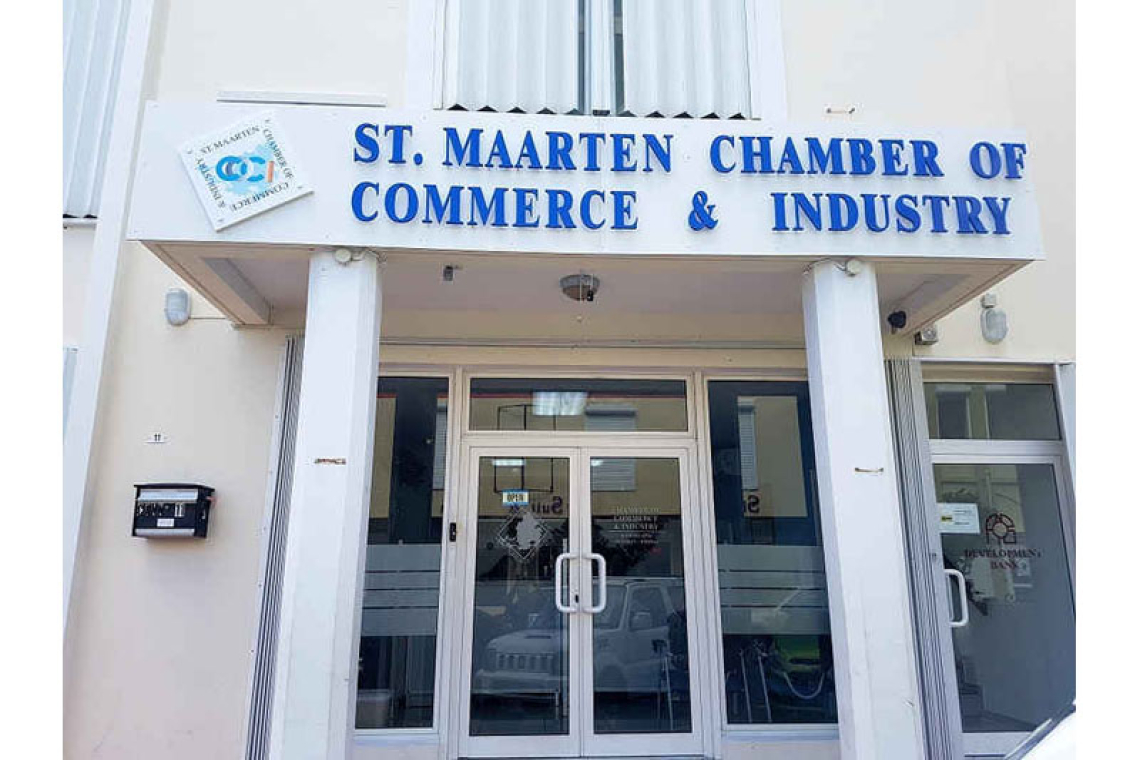The COCI building in Philipsburg.
~ Says need not established ~
PHILIPSBURG--The St. Maarten Chamber of Commerce and Industry (COCI) is questioning the argument used by the Central Bank of Curaçao and St Maarten (CBCS) to introduce a new Caribbean guilder, noting that the need for a new currency has not been established.
“The need for a new currency has not been established, and in addition, the cost for the introduction and the impact on the business sector and citizens, is a reason to question the timing,” COCI said in a press statement weighing in on the matter. “The current state of the economies within the monetary union does not support the burdening with additional and unnecessary costs related to the manufacturing and introduction of a new guilder bill,” COCI noted.
COCI said it had taken note of CBCS’ intention to introduce the new currency, noting that the decision is said to be based on the notion that the new guilder can help foster economic stability and prosperity within the monetary union.
“This statement was made in the press release after CBCS made a presentation to the Social Economic Council of Curaçao. The current guilder in no shape or form has led to economic instability or a lack of prosperity,” the Chamber maintained, adding that this guilder has been pegged to the US dollar for years and its stability follows directly from the fact that the conversion of this guilder has remained consistent.
“The CBCS does not elaborate on the economic stability to be attained, which gives COCI cause to question the argument to introduce a new guilder. The Caribbean guilder will not be any different to the Antillean guilder, beyond a new look as a different value is not expected,” stated COCI.
According to the Chamber, the cost related to the introduction of a new guilder is also one aspect that forces to question the need for a new currency now and how that expense will enhance stability and propel prosperity.
“COCI differs on the trajectory of economic stimulation as perceived by CBCS, in that there will be no impact with this introduction. This view is [based] on the fact that the currency will have the same value or exchange rate, thereby not having the elements to strengthen the economies. Furthermore, looking at our domestic situation of St. Maarten for which by de-facto is already dollarized, and added with the fact the currency is not even accepted in the northern part of the island, it would just be more of the same,” stated COCI.
“CBCS as the financial regulatory body of the union’s financial sector, taking an initiative for the benefit of the union is always welcome. However, with the economies still faced with the negative impact of the passage of Hurricane Irma in 2017 and the COVID-19 pandemic of 2020, COCI is of the opinion that initiatives geared at stimulating the economies of the union through the use of monetary policies, instruments would have been more ideal at this time, than just a change in the currency.”
The chamber implores CBCS, through the countries’ respective representatives, to formulate measures that can be triggered through monetary policies for the true benefits of the union. Policies geared at reducing inflation rates, stimulating business establishment and growth facilitating the ease of banking processes and other measures pertinent to stimulating the real sector of the economy are needed.
“Even facilitating the ease of opening bank accounts, where possible is another initiative direly needed since both economies (Curaçao and St. Maarten) currently experience adverse effects due to the inefficiency in this process,” stated COCI. “A new dollar bill will on its own not impact the economy in the manner envisioned by the CBCS. as without the measures named nothing will change in the dynamics of things.”







